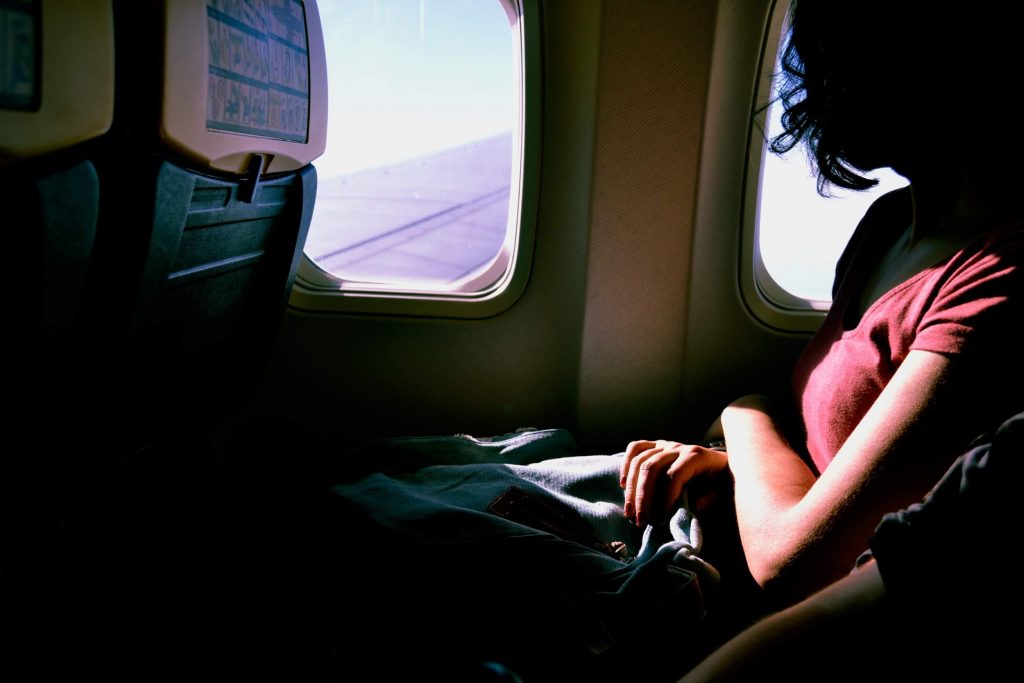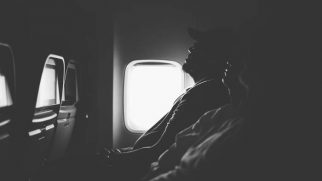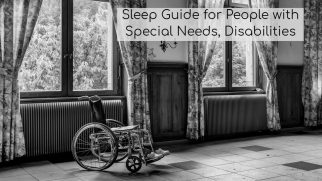What Is Jet Lag and How to Prevent It?
by | Last Updated
If you are a traveling devotee, you might have encountered jet lag at least once in your life.
And after that experience, you probably wish this could never happen again.
So do I.
That’s why I set out on a quest to understand how to prevent jet lag and what it actually is.
So, fasten your seatbelts and see what I’ve found.
What Is Jet Lag and Why Does It Occur?
First things first:
This condition happens when you quickly cross several time zones on a plane.
You see, our bodies are not made to cover great distances at high speed. Therefore, our circadian rhythms can get confused about being in a new day-night cycle. As a result, we begin to experience typical jet lag symptoms:
- drowsiness;
- irritability;
- delayed reaction and foggy brain;
- alertness in the middle of the night.
You might wonder now:
How long does jet lag last? When will these symptoms go away?
Well, it may take you from several hours to several days to recover from jet lag. Which is fine for a long vacation, but might become a struggle for a short and busy business trip.
Important Things About Jetlag (And Interesting Ways to Beat It)
Now, let me share some statistical data and interesting facts about jetlag:
- The World Health Organization does not consider this disorder to be a pathology. But in fact, approximately 60-70% of Americans were jetlagged at least once.
- There’s an opinion that flying east is harder for our body clock. Thus, you’re more likely to have jetlag traveling from the US to Bali than on your way back. There is a saying “west is best and east is beast”, which reflects the situation perfectly.
- Scientists have a hypothesis that the ability to adapt to a new time zone more quickly might be linked to some genes.
- You shouldn’t rely solely on pills to fall asleep. Food will work too. Eat foods rich in magnesium and tryptophan or refer to the natural sources of melatonin, such as pineapples and citrus fruits.
- Also, you can take a cold shower to be more alert. This procedure triggers a hormonal response similar to the one we get when we wake up.
If you do not have access to direct sunlight, light therapy can help. Just use neutral or warm white light and avoid the light from computer or phone screens.
Things You Can Do at Home to Combat Jetlag
The battle with the jetlag does not start when you get off the plane.
It starts at home, long before the trip.
Here are some tips to help you better adapt to the new cycle of day and night:
- Shift your schedule. To avoid jet lag, try to adapt to the timing of the new country in advance. So, if you fly west, shift your bedtime a couple of hours later. For the east, do the opposite. It may take your body 4-5 days to switch, but it will make staying at your destination much easier.
- Rest well before the flight. A trip to another country can make you very excited, but leave emotions for later. A good sleep before the flight will give you extra energy.
- Avoid night flights. Flights with night arrival times can add confusion to your messed up circadian rhythms. Better take flights with arrival time between 10 and 12 am.
Do not use alcohol as a light sleeping pill. In fact, although it is a depressant, it will give you short and fragmentary sleep, making the recovery harder.
How to Help Yourself Get Over Jet Lag While On the Plane?

Things you do during the flight can either help eliminate the jetlag symptoms or make them even worse. To avoid the second scenario, I suggest you do this:
- Avoid heavy meals. In fact, some researchers believe that full-packed dinner on board may cause jetlag. So, try to switch to proteins and fiber. Or bring with you some healthy snacks, i.e. nuts, protein bars or jerky.
- Stay hydrated. Airplane air is usually very dry and dehydration can further aggravate your symptoms and make recovering from jet lag harder. To avoid this, drink plenty of water.
- Use caffeine strategically. You can drink coffee before boarding if you have an important meeting immediately after your arrival. In any other case, it is better to drink coffee at least 3-4 hours before arrival.
- Try to score some sleep on a plane. Be it a 1-hour power nap or a 3-4 hour sleep session, go for it. Use a sleep mask and earplugs to reduce the surrounding noise and lights.
If you have a long-haul flight, for example, to Asia or Australia, use stopovers on your route. This will make fighting your jet lag much easier. Besides, tickets with connecting flights are way cheaper.
How to Beat Jet Lag Upon Arrival?
If you still have jetlag upon arrival, here’s what you can do to alleviate your condition:
- Tie your activities to the local time. If you have checked in at the hotel and still have a lot of time before going to bed, dedicate it to familiarizing yourself with a new country. Visit a museum, explore the neighborhood where you’re staying, stroll through the park, relax on the beach, or do anything else you like.
- Take some time to exercise. A gym at your hotel, a swimming pool, or at least an energized walking tour can add vitality and help you last until bedtime.
- Use melatonin for jet lag treatment. Since melatonin is not a drug, it is freely available in many countries. So, if you arrive at your destination in the evening, melatonin will help you fall asleep faster. But do not forget to visit your doctor before leaving to find out what is the optimal dosage of this supplement for jetlag treatment, considering your age and other factors.
In case none of these tips worked for you, do not sink into despair. Our mind power is an amazing tool in overcoming troubles. So, stay positive and don’t let jet lag ruin your vacation.
Also Read:
Travel And Sleep Well With These 3 Best Travel CPAP Machines
The 5 Best Travel Pillows For Long Haul Flights In 2020
How often do you travel by plane? Do your flights always end up with jet lag? Feel free to share some tips you use to deal with the symptoms below!





No Comments